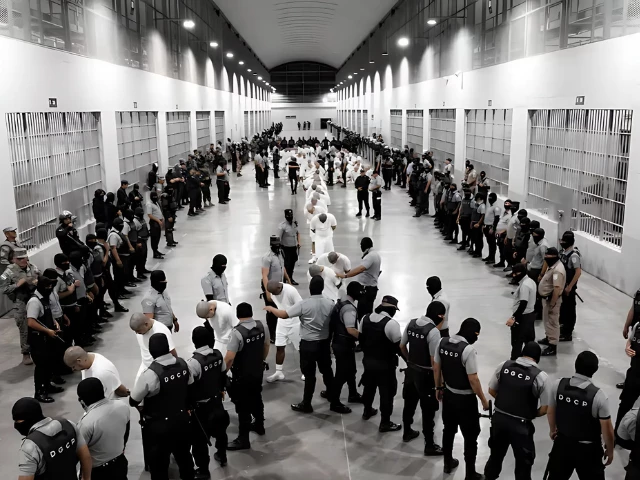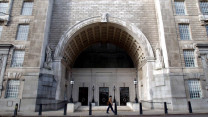US Supreme Court lifts block on Trump’s use of 1798 Act to deport migrants
It is first time the US has used the Alien Enemies Act without a formal war declaration by Congress

The US Supreme Court has lifted a lower court order that temporarily blocked the deportation of undocumented Venezuelan migrants under a centuries-old wartime statute, handing President Donald Trump a major legal victory while affirming that migrants must still be afforded basic legal protections.
In a 5-4 ruling, the court said the migrants deported under the 1798 Alien Enemies Act (AEA) must be given notice and a chance to challenge their removal.
However, it vacated the restraining order issued by District Judge James Boasberg, citing venue issues, as the affected migrants were detained in Texas but the case was filed in Washington, D.C.
“The detainees are confined in Texas, so venue is improper in the District of Columbia,” the justices wrote in an unsigned opinion. “Detainees subject to removal orders under the AEA are entitled to notice and an opportunity to challenge their removal.”
The decision permits the Trump administration to resume deportations of alleged Tren de Aragua gang members to El Salvador, a process that began on March 15 and had been blocked by federal courts after concerns were raised about the legality of using the AEA, which has historically only been invoked during declared wars.
The Alien Enemies Act, passed in 1798, grants the president sweeping powers to deport or detain nationals of a country deemed an enemy of the United States. It has been used during the War of 1812, World War I, and World War II, but never in a conflict without a formal war declaration by Congress—until now.
President Trump has described the Tren de Aragua, a violent Venezuelan criminal syndicate, as a foreign terrorist organisation “waging irregular warfare” against the United States.
Images released by US immigration officials show deportees shackled and shaven upon arrival at CECOT, a maximum-security prison in El Salvador known for its harsh conditions. Trump praised the ruling on Truth Social, saying, “A GREAT DAY FOR JUSTICE IN AMERICA!”
Attorneys for several of the deported Venezuelans argued that their clients had no criminal records, were not gang members, and were targeted based on tattoos and ethnicity.
The American Civil Liberties Union (ACLU), which brought the case, expressed concern over the ruling, but called the acknowledgment of due process rights an “important victory.”
“We are disappointed that we will need to start the court process over again in a different venue, but the critical point is that the Supreme Court said individuals must be given due process,” said ACLU attorney Lee Gelernt.
The ruling saw an unusual split: Justice Amy Coney Barrett, a Trump appointee, joined the court’s three liberal justices in dissent.
Justice Ketanji Brown Jackson called the use of the AEA in this context “an extraordinary threat to the rule of law,” warning that forcibly deporting individuals without proper review “should be quite concerning.”
Justice Sonia Sotomayor also wrote a strongly worded dissent, arguing the government's conduct “poses an extraordinary threat to the rule of law.”
The decision leaves the door open for future legal challenges, especially those filed in the correct venue. Rights groups are preparing to refile cases in Texas, where the migrants are currently detained.
According to ICE, at least 137 individuals have already been deported under the AEA. While the administration insists all deportees are verified gang members, court filings reveal that many lack US criminal records.
The Trump administration maintains that the use of the AEA is legally justified, citing a need to “secure the border” and “protect national security.” But critics argue that applying a wartime law to non-combatants without trial is both legally dubious and morally questionable.
























COMMENTS
Comments are moderated and generally will be posted if they are on-topic and not abusive.
For more information, please see our Comments FAQ